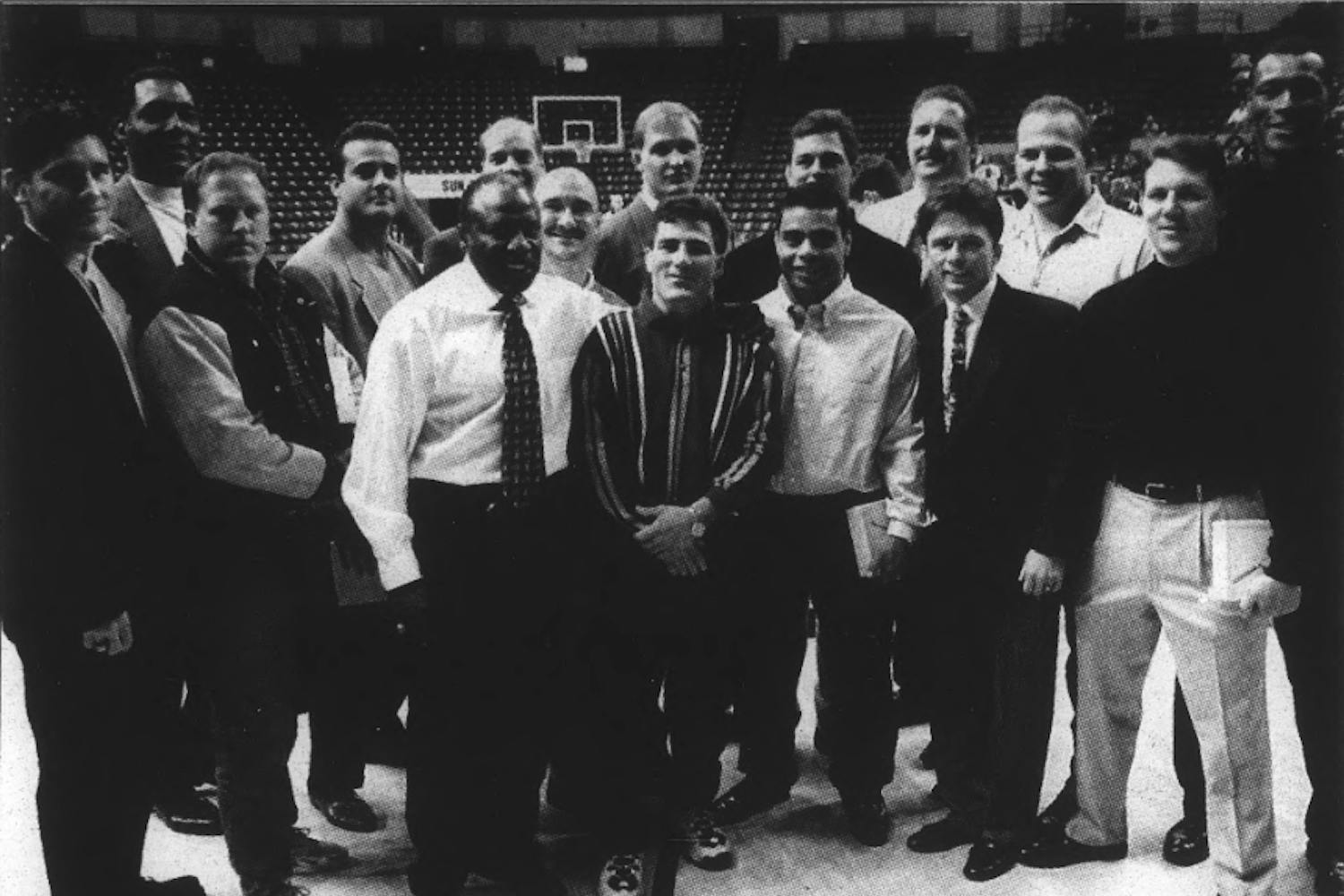Lisa Allwite stared out the window of the 12th floor of the Maricopa County Superior Court building, tears in her eyes. Her boyfriend of four years, Andrew Phillip Smith, had just been taken away by a Sheriff's deputy, sentenced to 10 months in jail, three years probation and fined $2,000.
"We got lucky today," she said.
Allwite did not specify why she thought she and Smith were lucky.
Maybe she was referring to his sentence. On Sept. 15, Smith pled guilty to forgery and transporting dangerous drugs. Combined, the maximum sentence for these offenses is 16.25 years in prison, 7.5 years probation and $300,000 in fines.
During the sentencing, Smith's attorney, James P. Leonard, was a wizard. He was a model trial attorney - tailored suit, attache and a vocabulary packed with S.A.T. words.
These guys don't come cheap.
Maybe she meant Smith was lucky not to be charged as a repeat offender. He was on probation in both Coconino and Pinal Counties for drug-related offenses. When he was stopped, Smith was in possession of five baggies of crystal meth, four baggies of pot, $1,884 in various bills, a digital scale and a handgun. Smith admitted to police he had intended to sell the drugs.
That's James P. Leonard, with an "L."
But maybe Lisa Allwite is a philosopher. Maybe she meant they got lucky in the sense that Smith, as a Caucasian, was born into a demographic that can afford trial attorneys - instead of settling for public defenders.
During Smith's sentencing, around 20 inmates dressed in black and white jumpsuits waited to be processed by the court. All of them were minorities.
According to 2004 U.S. Department of Justice statistics, 44.4 percent of all inmates in the U.S. were Caucasian. The rest belonged to another ethnic group - 55.6 percent of inmates were "minorities."
Using 2004 U.S. Census data to make odds, there is a much higher chance a minority falls below the poverty line versus a Caucasian person.
Non-Hispanic whites had a poverty rate of 8.6 percent, while 24.7 percent of African-Americans and 21.9 percent of Hispanics were labeled poor.
The main difference between the inmates dressed in black and white was not the severity of their crimes.
They differed in color, but that should not have mattered.
It was that Smith paid to be represented by an attorney while the others had dumped-upon bureaucratic drones we often call public defenders.
There's that, and the minor detail that their sentences spanned years instead of months. They were to be sent to prison alongside rapists and murderers rather than alongside drunk drivers and deadbeat dads in the Maricopa County Jail.
Lucky, lucky Andrew Phillip Smith.
Leonard even managed to secure work furlough for his client. Smith will only spend nights and weekends in jail. The rest of the time he will be able to leave to earn a paycheck.
The difference between a trial attorney and a public defender can be more than $10,000 - or more than 10 years, depending on how you look at it.
A minority in the U.S. is more likely to be poor than a Caucasian person. A minority is less likely to be able to afford good representation in court. A minority is more likely to receive a heavier sentence when the gavel falls.
We need to be vigilant in punishing criminals, but we cannot compromise the notion of justice in doing so. There is an enormous disparity in how justice is meted out to Americans of color.
Yes, Lisa Allwite, you are luckier than you know.
Arthur Martori is a journalism senior. Pronounce his sentence at arthur.martori@asu.edu.




